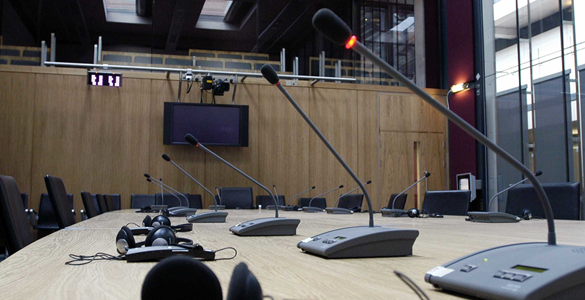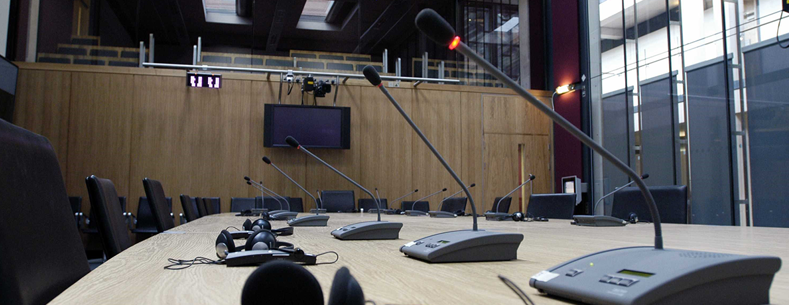Away from the political to-ing and fro-ing of Brexit, the work of preparing the law for exit day has been continuing at the Assembly and at Westminster. UK and Welsh Ministers have been making regulations under the European Union (Withdrawal) Act to amend existing primary and secondary legislation to ensure that there are no gaps in the law after Brexit.
The Constitutional and Legislative Affairs Committee (CLAC) is responsible for scrutinising these regulations, and they’ve produced a guide to the process. This blog post summarises that guide and looks at how the process is going so far.
Regulations made by UK Ministers in devolved areas
In an intergovernmental agreement between the UK and Welsh Governments, the UK Government says that it won’t make regulations in devolved areas without the agreement of the Welsh Government, stating that the primary purpose of such powers will be ‘administrative efficiency’.
These regulations are laid before the UK Parliament only. However, under Assembly Standing Order 30C, in the case of regulations made by UK Ministers under the Withdrawal Act, the Welsh Government must lay a statement notifying the Assembly of the regulations in question.
If the regulations amend primary legislation, then the Welsh Government must also lay a Statutory Instrument Consent Memorandum (SICM). Any Member may then table a motion to require the National Assembly to formally give consent to the regulations.
The Welsh Government has now laid 16 SICMs, and the number of written statements relating to regulations to be made by UK Ministers in devolved areas has reached 100.
By contrast, in the UK Parliament, Ministers have introduced 401 statutory instruments for the UK as a whole, but only 142 have completed their parliamentary journey.
Regulations made by Welsh Ministers
Welsh Ministers are also making regulations under the Withdrawal Act. Before certain statutory instruments are formally laid in the Assembly, they have to go through a sifting process to decide the appropriate level of scrutiny. Ministers have a choice of procedure, and most regulations will first be laid as ‘proposed negative instruments’. After a sifting process by the committee, these will be laid as statutory instruments (SIs).
As a result of the sifting process, CLAC may recommend that some regulations are subject to the affirmative procedure rather than the negative—this means that the regulations will need the approval of the Assembly before they can come into force. Regulations that have been sifted out in this way are then scrutinised by the committee and the outcome is reported to the Assembly.
A protocol agreed between CLAC and the Welsh Government has established an early warning system to enable appropriate planning to take place and ensure the most efficient use of resources.
As of the end of January 2019, 14 proposed negative instruments had been considered by the committee, with one of these being recommended for the affirmative procedure.
Concerns about Assembly scrutiny
During the process of introducing regulations, concerns have been raised by Members about the extent to which the Assembly is able to scrutinise them. On 4 December 2018, the Llywydd wrote a letter to the then First Minister Carwyn Jones, outlining concerns raised by committee Chairs about the role of the Assembly in the process of legislating for Brexit and the extent to which UK Ministers are acting on behalf of Welsh Ministers.
The new First Minister, Mark Drakeford, responded on 11 January and stated that the Welsh Government’s approach reflects the need to respond to the ‘extraordinary circumstances’ surrounding Brexit, rather than any attempt to frustrate the Assembly’s role as a legislature. Although he agreed that the legislative consent procedure does not allow Members to carry out the same detailed level of scrutiny that they are able to do for Assembly legislation, he stated the Welsh Government would not have been able to bring this volume of legislation before the Assembly in such a compressed time period. e HG
He also gave an update on the current situation:
I currently expect 140-150 UK Government EU Exit SIs to be made in areas devolved to Wales ahead of exit day, though this number is subject to change as SIs are merged or disaggregated and new ones emerge. Almost all of these will require the consent of the Welsh Ministers through the process set out in the Intergovernmental Agreement.
Brexit Minister Jeremy Miles also gave an update to the External Affairs and Additional Legislation Committee on progress of SIs on 4 February. He said that the scale of the broader challenge is ‘unprecedented’ and that the number of primary Bills and SIs that the Assembly would need to pass, if the Assembly was to deal with the entirety of the workload, would be greater in six months than the Assembly has ever passed in 12 months. He added that the changes being made are mostly technical or ones where there are no policy change of any significance.
He also gave an update on the number of Welsh Government SIs expected. He said that the Government are currently projecting to make 42 SIs. He also said that the Government is on course to have laid all necessary SIs for the sifting procedure so that CLAC will have enough time to consider them, and then for them to be re-laid as affirmative if that decision is made.
Progress report
On 6 February 2019, CLAC published a progress report on the scrutiny of Brexit regulations, and also sent an accompanying letter to First Minister regarding the scrutiny of Brexit legislation.
The main findings of the report are:
- The committee is concerned at the lack of detailed information contained in written statements under Standing Order 30C, and that the quality of these statements and the information they contain must be improved. The committee has also identified two sets of regulations that appear to be in breach of the Intergovernmental Agreement in that they are enacting new policy in devolved areas.
- The committee notes that the Welsh Government has not tabled any motions seeking the consent of the Assembly to the regulations that are the subject of SICMs, as the Government believes that a debate on these would not be a productive use of ‘valuable plenary time’. The committee’s view is that the concerns expressed relate to the capacity and priorities of the Welsh Government in dealing with the volume of legislation needed to correct the Welsh statute book, rather than the ability of the Assembly to undertake appropriate scrutiny of that legislation.
- While the committee accepts that the Welsh Government is under time and resource pressure, it believes that the Government has not got the balance right between permitting the UK Ministers to act on behalf of the Welsh Ministers and making its own legislation. Unless there is a delay to the UK’s exit from the EU, they recognise that the adopted approach cannot be changed, but remains unclear on why this position has arisen.
CLAC will continue to carry out this important work until exit day. Keep an eye on their pages on the Assembly’s website for all the latest information.
Article by Peter Hill, Senedd Research, National Assembly for Wales






